Introducing Specialised Professions – Unvarnished Chat with Prof. Moira Sim
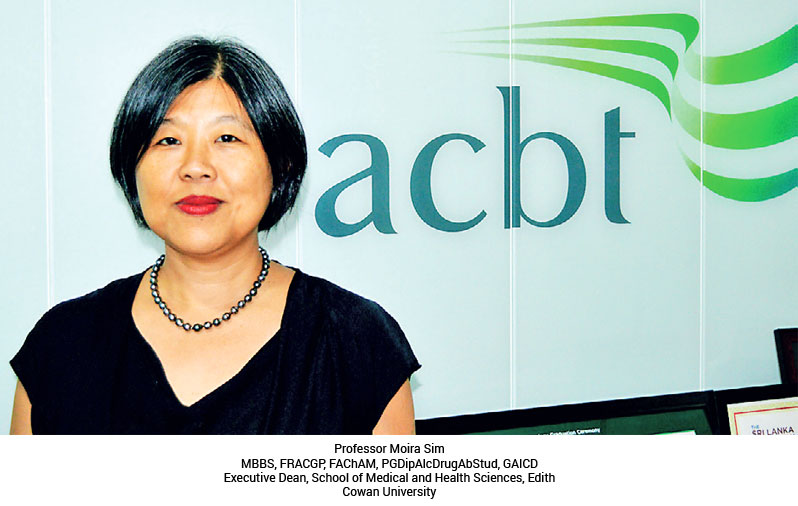
His Excel lency President Maithripala Sirisena had been hosted in Australia back in May 2017. While at a discussion with ECU Adjunct Professor Hallam Pereira, one of the resolutions discussed was to have collaboration to uplift Sports performance and along with that the sports science sector in Sri Lanka. Renowned for the competitiveness on the cricket pitch, Australia and Sri Lanka are setting aside their rivalry in a new project aiming to boost Sri Lanka’s wider sporting abilities in the world arena.
A team of six Edith Cowan University (ECU) sports scientists led by Associate Professor Sophia Nimphius travelled to Colombo to spend two days testing 184 Sri Lankan athletes from 11 sports, including athletics, cricket, badminton, netball, rugby, tennis, volleyball and wrestling. A series of tests were conducted to measure key attributes that define athletic performance, including jumping power, strength, speed, change of direction and aerobic capacity.
The Scientists utilised specialised testing equipment which is currently unavailable in Sri Lanka, which they had transported with them from Perth, Western Australia. The initial results were shared with the Sri Lankan coaches and officials from the Department of Sport Development, National Institute of Sports Science, National Olympic Committee and the National Institute of Sports Medicine. The ECU staff provided guidance on how to interpret the data and demonstrated how current training methods could be modified to enhance performance.
The Medical and Health Science Professor Moira Sim gave Education Times, a great insight on the long-term plans for developing this sector in Sri Lanka. “Each year we welcome more than 160 students to our We s t e r n Au s t r a l i a n Campuses as well as teaching ECU courses here in Colombo through our partner ACBT,” stated Professor Sim. She went on to state that the Australian sports teams have their own sports scientists who give them very specific advice to improve their performance based on their individual characteristics.
Further elaborating, she stated that testing, providing specific training programs, and retesting for continuous improvement can help Sri Lankan cricketers and other athletes to reduce their risk of injuries. Prof. Moira stated that identifying areas of weakness provide an opportunity to improve since it is easier to gain improvement in an area of weakness than in an area of strength.
A high amount of effort is required to improve when starting at highest limits of human performance, such as from 95 percent to 96 percent of the best known performance. But if a person starts at 70 percent, the same effort may get them to 80 percent. Sports scientists can measure these capacities, analyse and design targeted improvement programs which can improve performance in sports. “I’m a medical practitioner myself, and I gather that in Sri Lanka people want to send their kids in to medicine. But medicine is now just one part of a large healthcare system.
There are so many more careers in health care that the world is crying out for,” she stated. Health professionals have ventured into avenues such as speech pathology, dietetics, occupational therapy, exercise physiology and paramedicine. According to Prof. Sim these allied health areas have much demand and growth while being responsible for many aspects of treatment in the healthcare industry. “We hope that ACBT could train the students in the first part and act as the pathway for them to come to Australia to continue their studies at ECU where students can experience our practical “hands on” and “5 star” teaching.
ECU is the leading publ i c u n ive r s i t y i n Australia for student satisfaction. Our courses are fully accredited so that students can to develop the necessary knowledge and skills to treat patients,” stated Prof. Sim. She also stated “With the number of medical graduates now outstripping the internship opportunities, in recent years in Australia, many international graduates have not been able to find jobs.
After all those years of studying, not having a job can be quite frustrating. I believe it’s time Sri Lankans thought about careers beyond just medicine. In the Western world, increasingly jobs which were previously only done by medical doctors are now done by these allied health professionals. The world is changing rapidly and we need more and more allied health professionals.” She gave an example of a career: speech pathology.
“This is a very important profession. If you have kids having a difficulty in talking, stuttering or people who have had a stroke and has a difficulty in talking or swallowing, the skills will be taught by speech pathologists. Doctors don’t usually get trained in how to rehabilitate a patient to help them to talk after a stroke. We don’t know how to do that, it is not our specialty. We get trained to diagnose and prescribe medicine and other therapies.
Speech pathologists on the other hand get intensive training for at least three years on speech and related functions such as swallowing.” Furthermore she spoke about dietitics. Usually the common mind set of a Sri Lankan to go to a dietitian would be to lose weight and eat healthily. However Prof. Sim explained that dietitians recommend nutritious food and drink for patients with chronic disease including diabetes, cancer and many other diseases when they are being treated by a doctor.
Doctors aren’t specialised in recommending the correct food to eat, but dietetians are! “Occupational therapy is again if you have a stroke or cancer, and even the usual habits become alien to you, an occupational therapist will teach the simple things such as how to hold a fork and spoon, standing, sitting or even using the toilet. These are very specialised professions, which are rapidly growing,” added Prof. Sim. In Sri Lanka the ambulance driver is hired for the job, they know how to speed but not kill in the process.
They are trained simply for the skill in driving. However a paramedic has many more skills. In Australia paramedics drive the ambulance and are the first on scene, so they provide the first assessment and treatment in an emergency. They can give the patient drug treatment, start the heart up if it has stopped, they can put tube down the throat in order to get oxygen into the person. In simple terms, a paramedic can save your life, we learnt from Prof. Sim. “Those are things, as Sri Lanka is developing rapidly with which to start form.
These are the professions of the future,” Stated Prof. Moira. Considering the mindset of us Sri Lankan people, we raised questions as to the salary and status of these allied health Professions. Prof. Sim keenly answered stating that comparative to a doctor, studying for almost 10 years spending wealth and time, while still having to work after hours is exhausting. Further adding that in some cases allied healthcare professionals who have studied less years, can be employed earlier, and work less hours, may have at least comparable pay over a lifetime.
Prof. Sim stated that Universities around the world are moving towards Medicine as a post graduate qualification, that is students study a Bachelor degree such as Health Science and then apply to study Medicine after. “As students are more mature at this point, it may be easier for them to study medicine,” quoting Prof. Sim. The candid chat at the end convinced us that future lies in specialised professions, not only for the simple reasons of good pay and less exhaustion.
But also to take this country further from its current state and introduce specialised treatment and specialised professionals for any area which requires professionals. By increasing specialisation the job market will increase creating a wider range to choose from, reducing the unemployment rate while uplifting the Nation’s health and requirements.
Devuni Goonewardene
















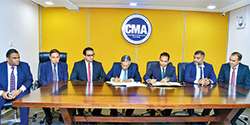
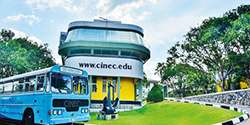
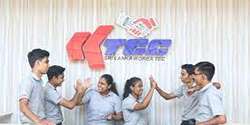

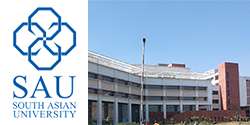


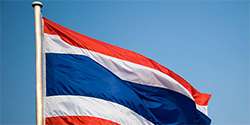
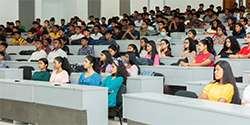
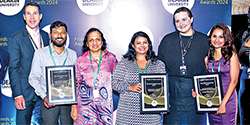
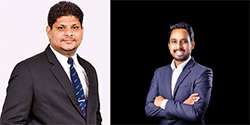
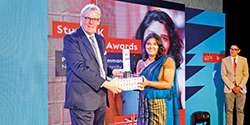
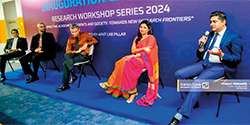
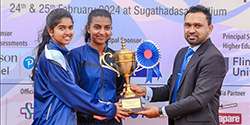
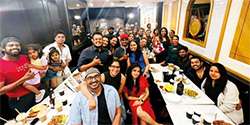
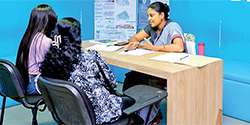
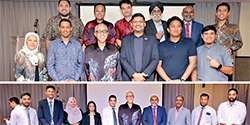
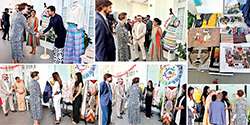
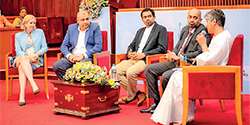
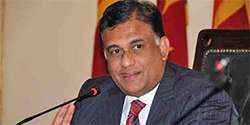
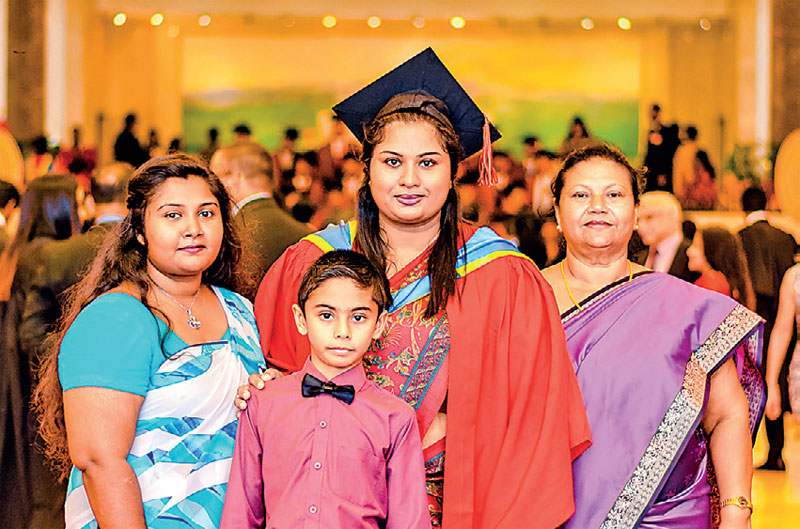

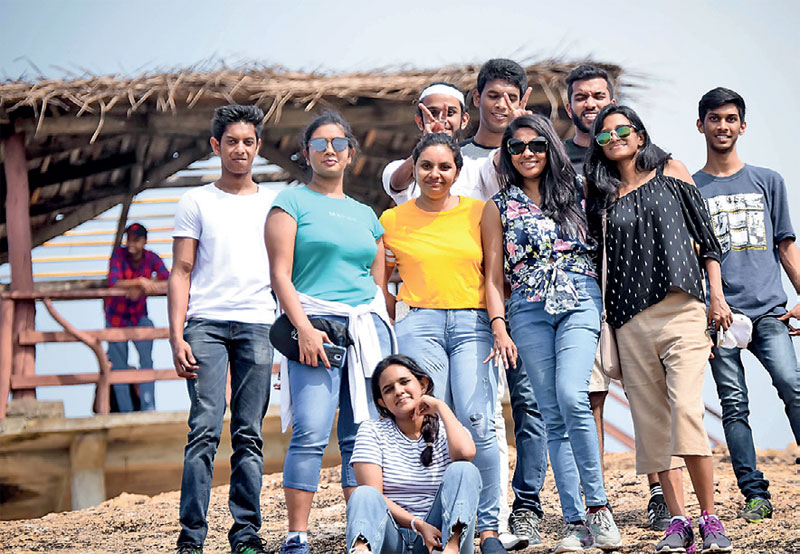
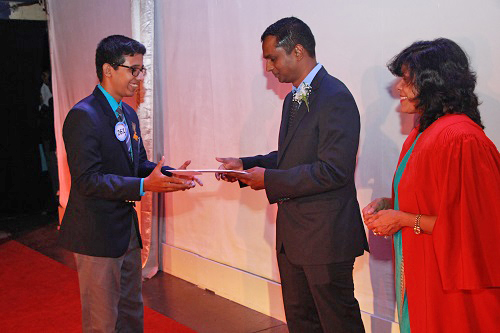
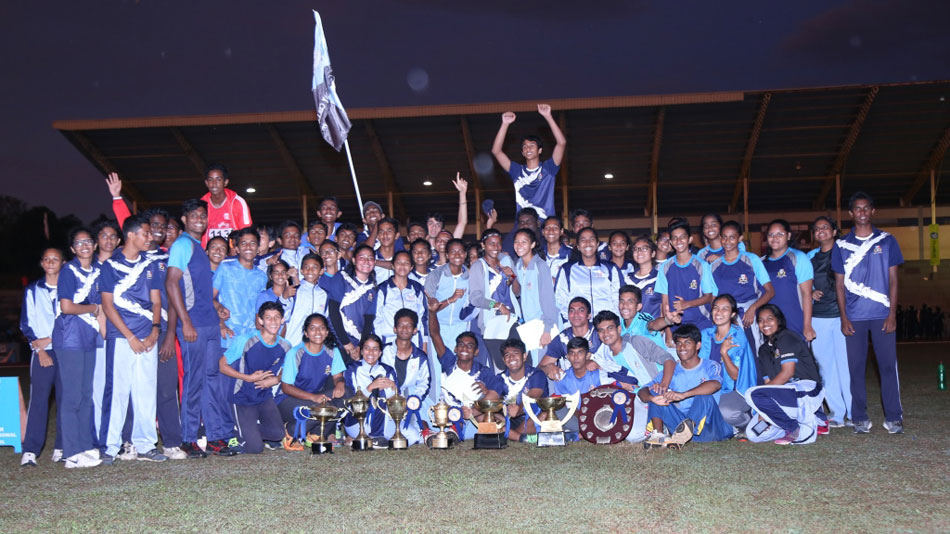
.jpg)
.jpg)
.jpg)

.jpg)
.jpg)
